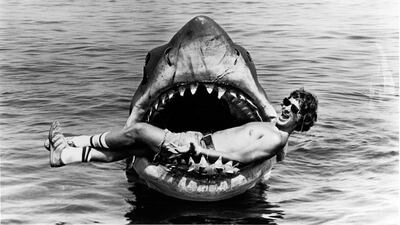When famous, mercurial film director Orson Welles was in a difficult moment in his career, he executed a neat little trick.
Over the years he had developed a reputation for being unreliable – his movies sometimes remained unfinished, his attentions would wander, and on one or two occasions his budget overruns were truly astronomical – so by the late 1950s he found it almost impossible to get financial backing for his pictures.
But even back in those days, before the world was swimming in hedge fund billionaires desperate to be in the entertainment business, you could almost always find a willing investor. (The term “investor” here is roughly equivalent to what con-artists and swindlers call “a mark.”)
Welles found a mark – but in this case, his mark was a movie studio, which meant they were wary of Welles’ reputation. They watched him carefully in pre-production, examined the proposed budget with forensic intensity, and – even more humiliating for a master like Orson Welles – they demanded a full report each day on the film’s progress.
The picture was Touch of Evil, and it was supposed to be a cheap little noir thriller. Welles had other ideas. He planned and executed a remarkable opening sequence – 12 minutes of high tension, filmed entirely in one take. It remains a remarkable and virtuoso piece of moviemaking.
The opening scene takes up almost 10 pages of the script. Welles wanted it that way. He spread the descriptions and the action across all of the pages to misdirect the studio.
Welles didn’t tell his studio minders what he was up to – that the first 10 pages of the script were going to be shot in one continuous take, that he would dispense with almost 10 per cent of the script in one day’s work – so when the studio heard from their spies that Welles had wrapped for the day with an amazing 10 pages completed, they relaxed a bit. They let him get on with his work.
The film is still pretty sensational, though it didn’t do what Welles wanted, which was to reignite his career. But it’s a pretty solid example of what a clever director can get away with.
Writers, of course, have no such tricks. Every tool a Hollywood writer has at his disposal is right there on the page. Screenwriters have only two arrows in the quiver: dialogue and action, which is why they absolutely hate it when directors change either one, which happens often.
A feature film set is a tiny little kingdom run by an absolute dictator – the director – and it often seems to writers as if by the time a picture is financed, cast, and in production the director has convinced himself that he wrote it, it was his idea, and that he’s solely responsible for its creation, despite the fact that some miserable writer tapped it out, alone, in a room somewhere months and months before the director became involved.
What erupts in Hollywood, almost daily, is a simmering war between the writer and the director in which the director almost always wins because he – and this is the crucial point – controls the person holding the camera and the person saying the lines.
I once watched helplessly as a well-known and celebrated director got pretty much everything wrong with a script I had written – the actors were improvising freely, the character motivations that I had painstakingly worked out were thrown to the wind – and worse, when I timidly complained over lunch that, gosh, I really envisioned a much different picture, he shrugged. “We’re making this one,” he said to me, adding, “you’ll like it when it’s finished, trust me.”
I didn’t like it when it was finished. No one did. The movie sat on the shelf for a while and then was quietly released with no advertising and no attention, and that was fine with me. The movie is universally seen as the director’s failure, just as it would have been his triumph had it worked. And that’s fair, I guess. If the despot is going to take all the credit, he deserves all of the blame.
I’ve had subsequent experiences with directors that have been much more enjoyable, but the truth is, after that I retreated to the world of television, where the writer holds the power.
Television is all about multiple episodes – a typical television series requires 12 hours of material per year, the equivalent of six motion pictures – so the person who controls the script pages and the storylines controls the process. Actors in a television series know that it’s the writers who pick the plot twists and the unexpected character deaths, who decide which characters are going to kiss each other and when, so they instinctively side with the writer.
Even TV writers can’t make 10 pages of the script disappear in one day’s work. That kind of sleight-of-hand trick is reserved for resourceful – and desperate – directors like Orson Welles.
Touch of Evil wasn't a success – it had, like most of Welles' pictures, a troubled editing process. But in this case, the writer and the director shared the blame because Orson Welles was both, and it's not clear, from the picture, if the two of them got along.
Rob Long is a writer and producer in Hollywood
On Twitter: @rcbl

